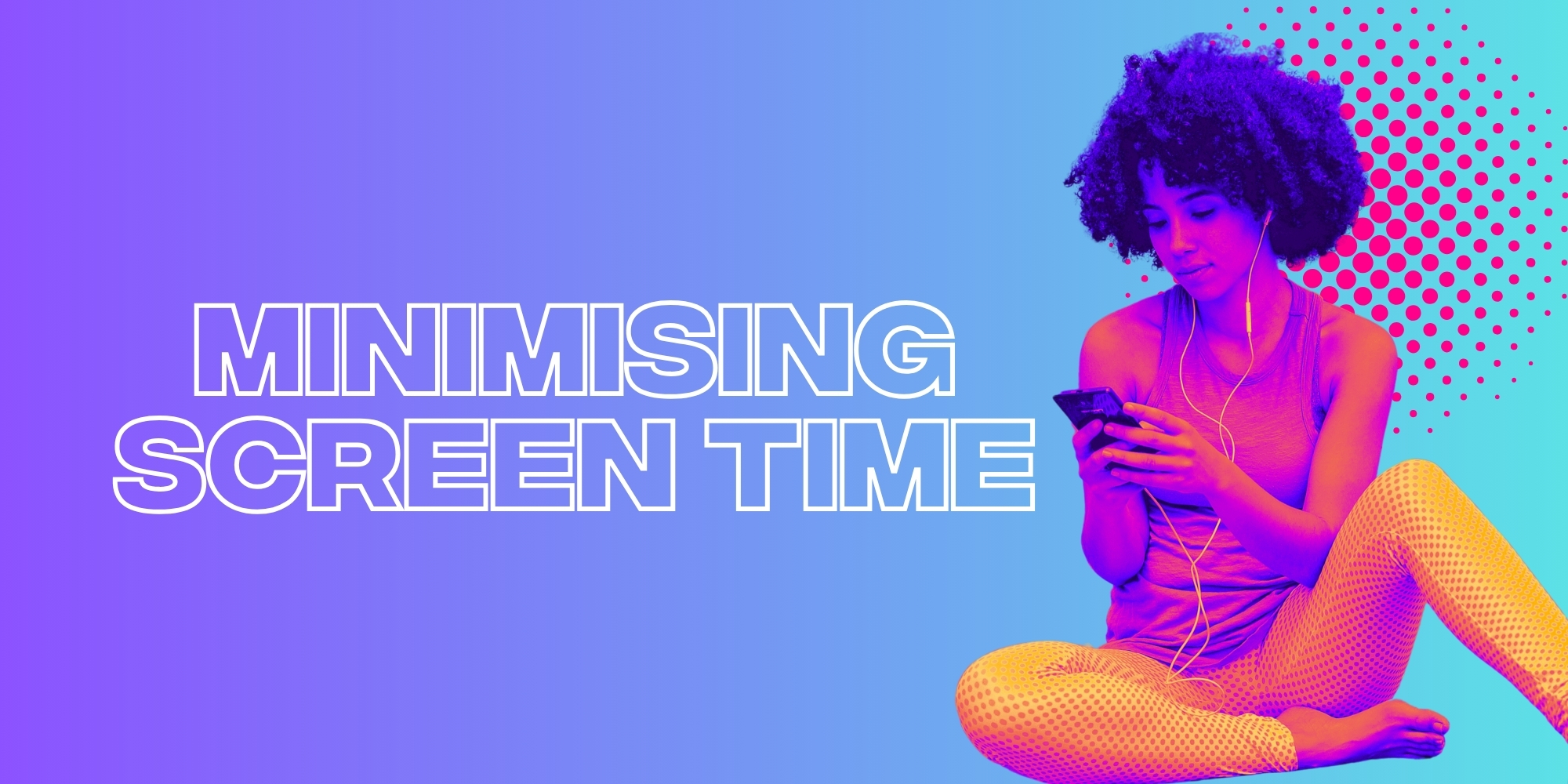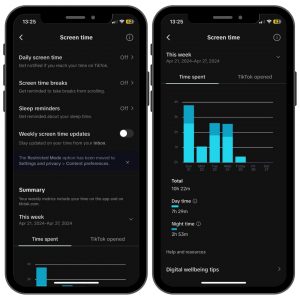How To Minimise Screen Time In An Epidemic
Apr 25, 2024
Article

In the wake of the COVID-19 pandemic, the surge in screen time among children and adults alike has been nothing short of staggering. From virtual classrooms to remote work setups, screens have become our lifelines, blurring the boundaries between necessity and excess. As the digital landscape continues to evolve, concerns regarding the adverse effects of prolonged screen exposure on physical health, mental well-being, and social interactions have come to the forefront.
Now, more than ever, the need to recalibrate our relationship with screens is imperative. It’s not merely about logging off; it’s about reclaiming our time, attention, and ultimately, our lives. Enter Screen-Free Week, a timely initiative slated for May, offering a respite from the incessant glow of digital devices and advocating for new methods to help minimise screen time. This annual event serves as a poignant reminder of the value in disconnecting to reconnect—with ourselves, our loved ones, and the world around us.
Throughout this series, we’ll delve into the latest usage statistics, shedding light on the pervasive impact of screens in our lives. From practical tips and strategies to help minimise screen time, to fostering mindfulness in a digital age, we’ll uncover actionable insights to help you reclaim control over your screen habits.
Read on to discover more!
CURRENT SCREEN TIME STATISTICS
Average screen time
- Globally, people average 6 hours and 58 minutes of screen time per day.
- Daily screen time has increased by nearly 50 minutes per day since 2013.
- The average American spends 7 hours and 4 minutes looking at a screen each day.
- South Africans spend 10 hours and 46 minutes on screen per day.
- Almost half (49%) of 0 to 2-year-olds interact with smartphones.
- Gen Z averages around 9 hours of screen time per day.

Screen time changes over time
From phones, to watches, to tablets, screens are everywhere. With the vast majority connected to the internet nowadays it only makes sense that the average time spent looking at screens is on the rise. But does this rise indicate that we should be looking to minimise screen time?
However, the rate of time increase isn’t the same across the board, and some countries have even seen a drop off between 2021 and 2022. Here’s the rate of change between average screen time in select countries between these years:
United Arab Emirates: +1.12
India: +0.42
South Africa: +0.39
Canada: +0.19
Belgium: +0.16
Sweden: +0.06
Ireland: +0.01
Australia: 0
Taiwan: 0
Russia: -0.02
Germany: -0.05
China: -0.06
USA: -0.07
South Korea: -0.08
France: -0.12
UK: -0.13
Indonesia: -0.15
Hong Kong: -0.29
Singapore: -0.38
Screen time by age
Age is an important factor in screen time consumption. Around 74% of parents with a child aged 2 or under claim their child watches TV. Similarly, 90% of older children spend time watching a TV screen.
Recent research shows that the most used device for screen time among children between 0-11-years-old is a TV, totalling 88%. Coming in second is tablets at 67%, 81% of whom are children between the ages of 5-8-years-old. Last, but not least, desktops/laptops claim the screen time of 44% of these children, with a clear correlation between age and desktop/laptop acquisition, due to 9-11-year-olds making up 73% of this category.
Across the board there is a strong positive correlation between age and the proportion of children using a device. Unsurprisingly, young people spend more time in front of screens than average. A recent study shows that Gen Z spends around 9 hours per day looking at a screen – this is approximately 2 hours more than the global average.
WHAT ARE THE HARMFUL EFFECTS OF TOO MUCH SCREEN TIME?
@drreza_t What time is everyone watching this at right now? 😅 #askthedoctor #screentime #screentimelimits
We’re constantly being told to minimise screen time, but does anyone actually know why?
Too much screen time can have various harmful effects on an individual’s physical health, mental well-being, and social interactions. Here are five notable consequences:
Eye strain
Excessive screen time can lead to digital eye strain, characterised by symptoms like dry eyes, blurred vision, headaches, and neck or shoulder pain. Prolonged exposure to blue light emitted by screens can disrupt sleep patterns and cause long-term damage to eye health.
Sedentary lifestyle and obesity
Spending extended periods in front of screens often leads to a sedentary lifestyle, reducing physical activity levels. This lack of movement can contribute to weight gain, obesity, and related health issues like cardiovascular problems, diabetes, and musculoskeletal disorders.
Impaired cognitive development
Excessive screen time, particularly in young children and adolescents, has been linked to impaired cognitive development. Excessive exposure to screens may hinder the development of crucial cognitive skills such as attention span, problem-solving abilities, and impulse control, potentially affecting academic performance and social skills.
Mental health issues
Research suggests a correlation between excessive screen time and various mental health issues, including anxiety, depression, and low self-esteem. Excessive social media use, in particular, can exacerbate feelings of inadequacy, loneliness, and social isolation, as individuals compare themselves to curated online personas.
Disrupted sleep patterns
Exposure to screens, especially before bedtime, can disrupt sleep patterns and quality of sleep. The blue light emitted by screens interferes with the body’s production of melatonin, the hormone responsible for regulating sleep-wake cycles, leading to difficulty falling asleep and experiencing restful sleep.
HOW TO EFFECTIVELY MINIMISE SCREEN TIME
If you’re unsure whether you’re spending an unhealthy amount of time in front of a screen, ask yourself the following questions:
- How are your eating habits?
- Are you sleeping okay?
- How often do you leave your house and socialise?
- Do you get any physical exercise?
If you find you’re not happy with your answers to any of these questions, then consider the following methods to help minimise screen time in order to set the answers straight again.
@stephpase Honestly changed my life 🥲 #techdetox #screentimehack #screentimelimits #phoneboundaries #socialmediadetox
Track your screen time and habits
Getting an overall idea of how much time you spend looking at screens and what activities you do on them can help you work out where to minimise screen time. Think about how much time is spent:
- Doing work-related activities
- Performing other essential tasks (eg, banking)
- Browsing the internet/social media
- Doing leisure activities such as watching films or gaming
If you find you’re spending more time than necessary on non-essential tasks, try setting usage limits or even delete some potentially-distracting apps.
Platforms like TikTok allow you set your own screen time limits in-app. Simply head to your settings and then to Screen Time. From here you can tailor your screen time allowances and even gain more insight into your own personal usage of TikTok, with some handy digital wellbeing tips to help minimise screen time if needs be.

Limit your number of screens
We’re all guilty of scrolling on our phones while watching something on TV. However, this can overstimulate your brain and increase the negative effects of excess screen time.
Where possible, try to limit yourself to one screen at a time. If using multiple screens is a regular occurrence, try physically moving devices away from each other or keeping them in separate rooms to curb the temptation.
Make your phone less appealing
It’s no secret that phones and other devices are powerful distractions that engage our brains and provide a dopamine hit. Try making your phone less appealing by:
- Setting it to silent
- Changing to greyscale
- Lowering the brightness
You can also tap into your other senses, such as smell and touch, to take your mind off of wanting to use your phone/tablet/laptop etc.
Schedule screen-free breaks
You can effectively minimise screen time by introducing regular breaks on work days and longer screen breaks on your days off.
For those who work in front of a screen, try setting an alarm to go off every 30-45 mins reminding you to take a screen break. No, taking a break from your computer to look at your phone doesn’t count…
Consider implementing the following activities to help further minimise screen time on your days off:
- Reading
- Cooking
- Walking
- Cleaning
- Spending time with friends/family
- Creating something
- Exercising
Switch off before bed
Studies show that staring at your phone or computer screen before bed can make it harder for you to fall asleep and reduce the quality of your sleep.
To improve this, try to stop scrolling at least one hour before you plan to sleep. If you struggle to do this naturally, then try setting alarms indicating that it’s time to switch off. The more you do this, the easier it will be to form the habit. Try making your bedroom device-free by removing chargers, devices and TVs.
Ultimately, while it’s important to minimise screen time for health benefits, try not to be too hard on yourself. Simply making just one or two changes will still have a positive impact on your health and wellbeing.
Social And Influencer Marketing News + Insights
Get in touch
We'll show you how to start powerful conversation, drive social engagement, build your brand, hit sales targets or meet other goals you have, wherever you are in the world.
Work with us





